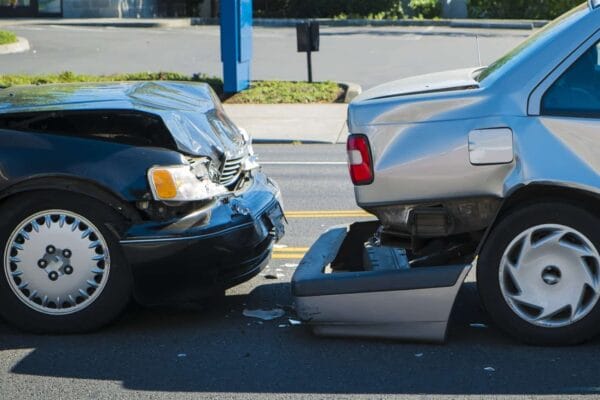
The Short Answer…
The average car accident settlement can vary significantly, typically falling within a broad range depending on the circumstances of the crash. Factors such as the severity of your injuries, fault, insurance policy limits, and the impact on your daily life all influence the final payout amount. Whether your case involves minor property damage or serious bodily injury, understanding these variables is key to estimating your potential compensation. At Braker White, we help clients in Odessa, Midland, and across West Texas pursue the full value of their car accident claims with strategic, personalized legal representation.
Key Takeaways
- Car accident settlements are calculated by evaluating economic and non-economic damages, supported by strong evidence and legal strategy.
- The typical car accident settlement depends on injury severity, liability, insurance limits, and how the crash affects your life.
- Even minor or non-injury accidents can result in compensation, especially if you experience financial loss or emotional distress.
- Taking immediate action and avoiding common mistakes can protect your settlement.
- Hiring an experienced car accident lawyer increases your chances of securing the settlement you may be owed.
Table of Contents
- What Is a Car Accident Settlement?
- Factors That Affect the Average Car Accident Settlement
- Car Accident Settlement Process in Texas
- What to Do After a Car Accident to Protect Your Settlement
- Mistakes That Can Lower Your Car Accident Settlement
- FAQs About Car Accident Settlements
- Why Legal Help Makes the Difference in Your Car Accident Settlement
What Is a Car Accident Settlement?
A car accident settlement is a financial agreement between the injured party and the insurance company or at-fault driver. The goal is to compensate the victim for their losses, including medical expenses, lost wages, pain and suffering, and property damage, without going to trial.
Settlements can occur at any stage of a case—shortly after the crash, during the claims process, or even after filing a lawsuit. Most personal injury cases, including car accidents, end in settlements rather than jury trials.
How Car Accident Settlements Are Calculated
Car accident settlements are calculated by evaluating several key components:
- Economic Damages: These include measurable financial losses such as medical bills, lost income, and property damage.
- Non-Economic Damages: These cover subjective losses like pain and suffering, emotional distress, and loss of enjoyment of life.
- Supporting Evidence: Insurance adjusters and attorneys rely on documentation such as medical records, pay stubs, repair estimates, and expert evaluations.
- Impact on Daily Life: Considerations include how the accident affects your ability to work, care for family, and engage in regular activities.
- Negotiation Factors: The final settlement amount also depends on the strength of the evidence, chances of success at trial, and available insurance coverage.
Each of these factors is assessed to arrive at a settlement offer.
Factors That Affect the Average Car Accident Settlement
The typical car accident settlement depends on the facts of your case. Cases with serious injuries or long-term medical needs typically settle for more than those involving property damage alone. Insurance coverage, liability, and how quickly the injured person gets medical treatment also affect settlement amounts.
Injury Severity
More serious injuries, such as traumatic brain injuries or spinal damage, usually result in higher compensation.
Medical Expenses
Settlements often reflect both current and future costs of treatment, rehabilitation, and medication.
Lost Wages & Earning Capacity
If the accident causes you to miss work or limits your ability to earn in the future, this loss is factored into the settlement.
Pain & Suffering
Compensation for physical pain, emotional trauma, and reduced quality of life are often considered when determining settlement amounts.
Property Damage
The cost to repair or replace your vehicle and any other damaged property is included.
Liability (Fault)
Under Texas law, modified comparative negligence means your compensation may be reduced if you share any fault.
Insurance Policy Limits
The maximum amount available for compensation often depends on the coverage held by the at-fault party or yourself.
Evidence & Documentation
Strong supporting evidence such as photos, police reports, medical records, and witness accounts can significantly impact the settlement value.
Legal Representation
Having a skilled car accident attorney on your side can greatly improve your chances of securing a fair and full settlement.
Car Accident Settlement Process in Texas
Understanding the car accident settlement process can help you know what to expect and how to prepare. While not every case follows this exact timeline, knowing each step helps you make informed decisions and feel more confident throughout the legal process.
1. Investigation
This is the first step, where evidence is gathered to support your claim. Your attorney will collect police reports, medical records, photographs, video footage, and witness statements to build a strong case.
2. Demand Letter
After evaluating your damages, your lawyer will send a formal letter to the at-fault party’s insurance company outlining the facts of the accident, your injuries, and the compensation you’re seeking. This letter initiates the negotiation process.
3. Negotiation
Insurance adjusters will typically respond with a counteroffer. Your attorney will negotiate back and forth with the insurer to pursue a fair amount that covers all your losses, including future damages if applicable.
4. Settlement Agreement
If both parties reach an agreement, a formal settlement is drafted and signed. Once signed, you typically waive your right to pursue further legal action in exchange for the agreed-upon compensation.
5. Lawsuit
If negotiations stall or the insurance company refuses to make a fair offer, your attorney may file a lawsuit on your behalf. This step escalates the matter to the courts for resolution.
6. Mediation or Trial
Before going to trial, many cases are resolved in mediation, where a neutral third party helps both sides come to an agreement. If mediation fails, your case proceeds to trial where a judge or jury will determine the outcome.
What to Do After a Car Accident to Protect Your Settlement
Taking the right steps immediately after a car accident can significantly impact your ability to secure a fair settlement. These actions help preserve evidence, support your legal claim, and protect your rights.
- Get medical attention, even if injuries seem minor.
- Report the crash. Call 911 and request a police report.
- Document everything, including photos, contact info, and your own notes.
- Avoid social media. Posts can be used to dispute your claim.
- Contact a lawyer. Don’t speak to the insurance company alone.
Mistakes That Can Lower Your Car Accident Settlement
Even strong car accident claims can be weakened by common missteps made early in the process. Being aware of these pitfalls can help you avoid jeopardizing your financial recovery.
- Delaying Medical Care: Gaps in treatment can hurt your case. Insurance companies often use this delay to argue that your injuries were not serious or not caused by the accident.
- Giving a Recorded Statement: Insurers may twist your words. Anything you say can be used to downplay your injuries or shift blame, even unintentionally.
- Accepting a Lowball Offer: Initial settlements rarely reflect your true losses. Insurers frequently offer quick payouts that fail to cover long-term expenses or non-economic damages.
- Missing Deadlines: In Texas, the statute of limitations for car accident claims is 2 years. Missing this deadline can result in losing your right to recover any compensation.
Avoiding these mistakes can strengthen your case and improve your chances of receiving a fair settlement. Working with an experienced attorney is one of the best ways to sidestep these issues and protect your interests from the start.
FAQs About Car Accident Settlements
What is the average settlement for car accident back and neck injuries?
Back and neck injuries often involve whiplash, herniated discs, or spinal strain, which can significantly impact your mobility and quality of life. Depending on the severity and lasting effects of the injury, settlements for these types of cases often fall within a broad range, typically 5-figure amounts or more. Settlements for these injuries take into account the cost of medical treatment, therapy, and any lasting pain or physical limitations.
What is the typical no injury car accident settlement amount?
Even if you didn’t suffer physical injuries, you may still be eligible for compensation to cover vehicle repairs, lost time from work, and emotional stress. These settlements tend to be on the lower end, often ranging from several hundred to a few thousand dollars, but they are still important to pursue, especially if the other party was clearly at fault.
What is the typical car accident settlement amount with injury?
When injuries are involved, settlements often reflect medical costs, recovery time, pain and suffering, and lost wages. Depending on the severity and long-term impact of the injuries, compensation can range from moderate to substantial amounts, with more serious or disabling injuries warranting higher payouts.
How long does it take to secure a car accident settlement?
The time it takes to reach a settlement varies widely depending on the complexity of the case. Some claims are resolved in a few months, while others involving serious injuries or disputed liability can take a year or more. Having a knowledgeable attorney can help speed up the process by managing negotiations and deadlines.
How are car accident settlements paid out?
Most car accident settlements are paid in a lump sum after the agreement is finalized. In some cases, especially those involving long-term injuries, a structured settlement with periodic payments may be arranged. Payment is typically issued by the at-fault party’s insurance company.
How can I get more money from a car accident settlement?
To increase your settlement value, you should seek prompt medical care, document all damages, avoid discussing your case on social media, and work with a qualified attorney. A lawyer can help you present strong evidence, negotiate effectively, and include future damages in your claim.
Is my car accident settlement taxable?
Generally, settlements for physical injuries and medical expenses are not taxable. However, portions related to lost wages, emotional distress, or punitive damages may be taxable under certain circumstances. Consult a tax professional for advice specific to your case.
Do I need a lawyer for a car accident settlement?
While it’s possible to settle minor claims on your own, having a lawyer dramatically improves your chances of receiving full and fair compensation. An experienced attorney can handle negotiations, protect your rights, and help ensure no damages are overlooked.
Why Legal Help Makes the Difference in Your Car Accident Settlement
Hiring a car accident lawyer is one of the most important steps you can take after a crash. Without legal representation, you risk being undercompensated for your injuries, medical bills, and lost wages. At Braker White, we are dedicated to helping injured Texans recover the full settlement they may be entitled to.
When you choose our firm, you benefit from:
- Decades of Experience: We’ve successfully represented countless car accident victims throughout West Texas.
- Aggressive Negotiation Skills: We push back against lowball offers from insurers and fight for every dollar you may be owed.
- Comprehensive Case Management: From investigating the crash to managing paperwork and deadlines, we handle it all.
- Client-Centered Support: Our team is committed to keeping you informed, answering your questions, and making the process as stress-free as possible.
- Focused on Maximum Compensation: We calculate the true value of your case, including future costs and non-economic damages.
Whether your case involves injury, property damage, or emotional trauma, our experienced attorneys are here to guide you every step of the way. Let Braker White be your advocate.
Schedule your free consultation today and take the first step toward a successful recovery.











